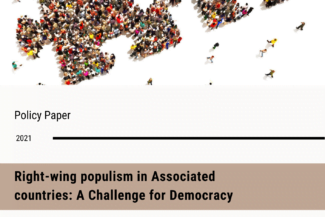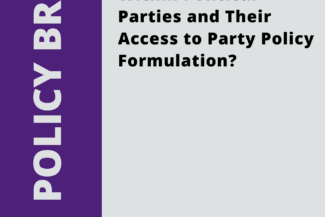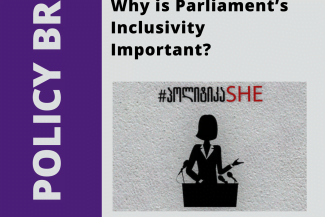17-05-2023
Radical political polarization has significantly decreased public trust towards political parties in Georgia in recent years. This is problematic given the upcoming 2024 parliamentary elections. Strengthening political parties, and thus improving democratic competition in the country’s political landscape, is of enormous importance. For this to happen, political parties must study various segments of voters and adequately reflect their demands in election platforms and action plans. Female voters constitute one of these important voter segments.
More than half of voters in Georgia are women. Empirical research conducted in consolidated and emerging democracies suggests women voters have different political preferences compared to men, and therefore have different expectations from political parties. This Policy Brief shows a similar dynamic in Georgia, where, unlike male voters, female voters are more likely to prioritize social and economic issues. However, in addition to social-economic problems, the increasing number of cases of violence against women is also an important issue for women.
In conclusion, this Policy Brief offers recommendations for political parties on how to study the preferences of female voters and reflect the issues important to them in their election platforms.
Key Words: women voters, political parties, social-economic challenges, violence against women, women’s economic empowerment.










